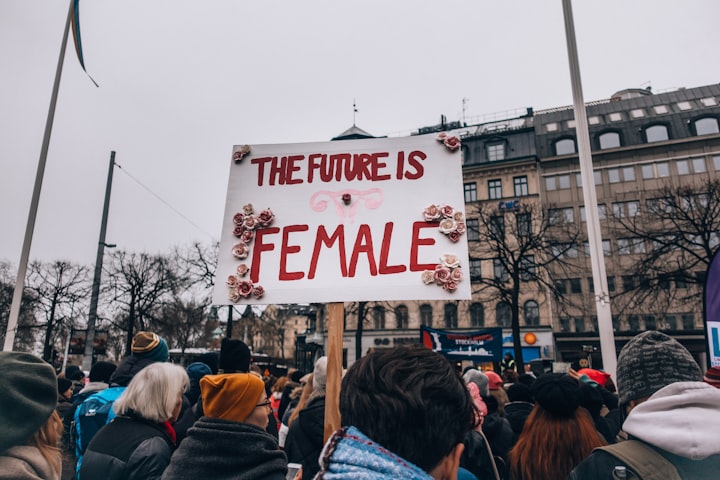Women's Fight for Equality: Any Progress?
Exploring the Challenges and Triumphs of Women Across the Globe in Pursuit of Gender Equality and Empowerment

Women make up approximately half of the world's population, yet they face numerous challenges and inequalities in many areas of life. Despite significant progress in the past century, women still face discrimination and obstacles in areas such as education, employment, healthcare, and political representation.
The gender wage gap is a persistent challenge that affects women worldwide, regardless of their age, education level, or occupation. In many countries, women earn only a fraction of what their male counterparts earn, even when they have the same qualifications and experience. This not only affects women's economic security and their ability to support themselves and their families, but it also has wider implications for society as a whole.
One of the main factors contributing to the gender wage gap is occupational segregation, which refers to the concentration of men and women in different occupations and industries. This is often due to social and cultural norms that assign certain jobs to men and others to women, such as the belief that women are better suited to caregiving roles, while men are more suited to leadership and technical positions. This results in women being overrepresented in lower-paid, female-dominated fields such as healthcare, education, and hospitality, while men dominate higher-paid, male-dominated fields such as engineering, finance, and technology.
Another factor contributing to the gender wage gap is discrimination, both overt and subtle. Women may face discrimination in hiring, promotions, and pay, often due to unconscious biases or stereotypes about women's abilities, commitment, and value. Additionally, women who take time off work to care for children or other family members may experience a "motherhood penalty," where they are penalized in terms of pay and opportunities compared to men and childless women.
Lack of access to education and training is another significant factor that contributes to the gender wage gap. Women are often denied access to education or discouraged from pursuing certain fields of study, which limits their opportunities and earning potential. Additionally, women may be less likely to receive training and development opportunities on the job, which can limit their ability to advance in their careers.
Another challenge that women face is gender-based violence. According to the World Health Organization, one in three women worldwide has experienced physical or sexual violence in their lifetime. This violence can take many forms, including domestic violence, sexual harassment, and rape, and can have serious physical and psychological consequences for women.
In addition to these challenges, women also face barriers to political representation and leadership roles. Despite making up half of the world's population, women are underrepresented in political leadership positions, with only 25% of parliamentary seats held by women globally. This lack of representation can lead to policies that do not reflect women's needs and perspectives, and can limit women's ability to influence decision-making processes.
Despite these challenges, women have made significant progress in recent years, particularly in terms of education and healthcare. More girls than ever before are enrolled in school, and maternal mortality rates have decreased significantly in many parts of the world. However, there is still much work to be done to achieve gender equality and ensure that women have equal opportunities and access to resources.
To address these challenges, it is important to implement policies and initiatives that promote gender equality and empower women. This can include increasing access to education and training, promoting women's leadership and political representation, and addressing the root causes of gender-based violence. It also requires a cultural shift towards valuing and respecting women's contributions and perspectives.
In conclusion, women make up approximately half of the world's population, and their rights and well-being are essential for achieving a fair and equitable society. While progress has been made in recent years, there is still much work to be done to address the challenges and inequalities that women face. By working towards gender equality and empowering women, we can create a world that values and respects the contributions of all people, regardless of their gender.
About the Creator
thingsandstuffzy
Writing about things that people should know about because they need to know about things. Isn't this exciting?






Comments
There are no comments for this story
Be the first to respond and start the conversation.